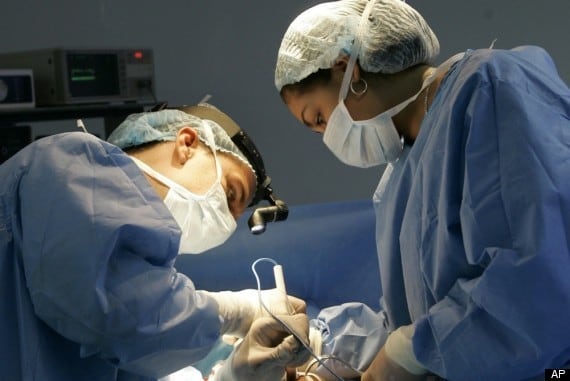ASAPS Advice on the Steps to Finding the “Right” Cosmetic Plastic Surgeon
A good cosmetic surgeon can do wonders to the way you look and feel about yourself. Board certified plastic surgeon Dr. Mark Pinsky has observed that many of his patients gained more confidence after getting good results from their cosmetic procedures.

Steps to Finding the “Right” Cosmetic Plastic Surgeon
The American Society for Aesthetic Plastic Surgery, the only national organization of board-certified plastic surgeons specializing in cosmetic surgery, offers ASAPS Guidelines for Patients – How to Find the “Right” Cosmetic Plastic Surgeon:
Check Board-Certification
A doctor’s board-certification is the best indicator of his or her training in a particular medical or surgical specialty. Look for certification by the American Board of Plastic Surgery (ABPS), the only Board recognized by the American Board of Medical Specialties (ABMS) to certify doctors in the specialty of plastic surgery.
Check ASAPS Membership
ASAPS membership ensures that a doctor not only is ABPS-certified (or, in Canada, certified in plastic surgery by the Royal College of Physicians and Surgeons of Canada.) but also has significant experience in cosmetic surgery. ASAPS membership is by invitation only. To ensure that the doctor is a member, visit the ASAPS database, Find-a-Surgeon.
Check Facility Accreditation
Cosmetic surgery can safely be performed in a hospital, a surgicenter or an office-based surgical facility: Current published data show that accredited office-based facilities have a safety record comparable to that of hospital ambulatory surgery settings. However, the majority of office-based surgical facilities are not accredited. Another advantage of selecting an ASAPS member is that all ASAPS surgeons operate in accredited, state-licensed or Medicare-certified facilities.
Check Hospital Privileges
Before granting operating privileges, hospital review committees evaluate a surgeon’s training and competency for specific procedures. Wherever the surgery will be performed, be sure that the surgeon has operating privileges in an accredited hospital for the same procedure being considered.
Check Reliable Sources
Asking a patient’s primary care doctor for recommendations is a good place to start, and friends may offer suggestions; but the surgeon’s board-certification should always be verified independently by contacting the American Board of Plastic Surgery (www.abplsurg.org). Free referral information to board-certified plastic surgeons with significant experience in cosmetic surgery can be found on Find-a-Surgeon. ASAPS’ web site, www.surgery.org also offers extensive information about cosmetic surgical procedures.
Check Thoroughness
The consultation is an important opportunity for questions to be asked and answered. It should include a candid discussion of risks as well as benefits of the surgery. A thorough consultation also involves a review of medical history including any existing medical conditions. All these factors help the surgeon to custom-tailor the operation to best meet the needs of each patient.
Check Rapport
Even the most experienced surgeon is not the “right” surgeon for every patient. Any successful relationship depends on good communication. Patient satisfaction is enhanced when surgeon and patient candidly discuss goals, agree on realistic expectations, and plan the course of the surgical journey together.
Check Experience
Experienced aesthetic plastic surgeons generally perform a wide range of cosmetic surgeries on a regular basis. Patients should ask about the surgeon’s experience with the particular procedure being considered. If considering a “new” technique or technology, patients should inquire whether results substantiating safety and effectiveness have been published in a peer-reviewed journal.
Check Follow-up Care
Good surgical care does not end with the surgery. Patients should inquire about follow-up visits and about the doctor’s policies should surgical revisions be necessary.
Check Cost
National averages for surgeons’ fees can be found here Keep in mind that costs may vary considerably depending on geographic region, surgeon experience and individual patient factors. Not all patients can be treated with the same technique, and the complexity and length of surgery affect cost. Patients should note that cosmetic surgery usually is not covered by insurance.